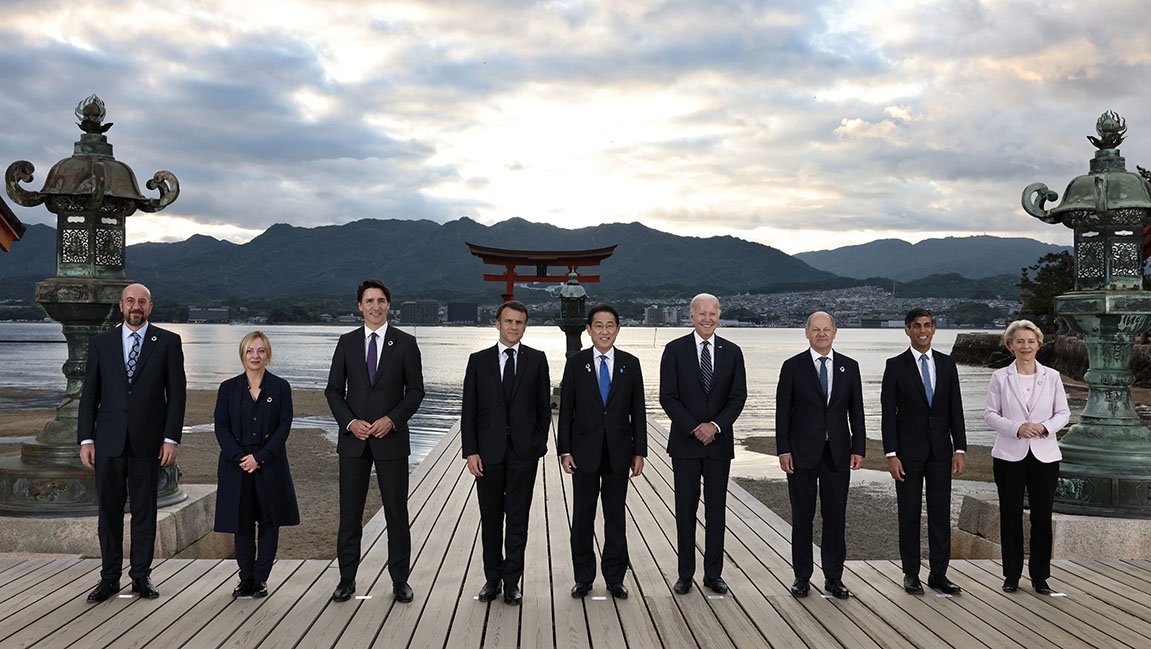G7 Leaders’ commitment to global education welcomed
G7 Leaders include langauge on education in Leaders’ Communique
IPNEd welcomes affirmation of existing committments, particularly on financing
The International Parliamentary Network for Education welcomes the inclusion of education in the G7 Hiroshima Leaders’ Communique.
At the conclusion of their meeting in Hiroshima, Japan the leaders of the world’s most advanced democracies issued a forty page communique which affirms the G7’s commitment to international principles, shared values and cooperation, including on education.
“Prior to the Summit I joined fellow members of parliament from across the G7 in calling for education to be on the G7 agenda so I am delighted that the communique recognises both the centrality of education to sustainable development and the challenges we face in delivering the global education goals,” said the Right Honourable Vicky Ford MP, the Co-Chair of IPNEd.
“I was particularly pleased to see the call for more and better education financing affirmed in the statement, including the importance of fully funding both Education Cannot Wait and the Global Partnership for Education.
“IPNEd will continue to work with our members in G7 parliaments to ensure their governments make good on these commitments. I am particularly hopeful that this opens the door for France and Japan becoming donor partners of Education Cannot Wait,” concluded Ms. Ford.
“The statement also reiterates the importance of foundational learning, which we welcome. Ninety percent of ten year olds in Sub-Saharan Africa can’t read and understand a simple sentence, so recognition that more must be done to turn this crisis in learning around is critically important,” said IPNEd’s Executive Director, Joseph Nhan-O’Reilly.
“In the face of unprecedented global challenges the G7’s leaders have made it clear that they are committed to working together to solve them. We welcome this and look forward to growing cooperation across and beyond the G7 to accelerate efforts to provide a quality education to every child.”
The G7 Hiroshima Leaders’ Communiqué section on education
We commit to making progress for ensuring inclusive and equitable quality education, including vocational education, and promote lifelong learning opportunities for all to build resilient, just and prospering societies. Recent crises have led to decreased access to education and increased learning loss amongst children and youth, especially girls, and those in the most marginalized and vulnerable situations.
As education is a catalyst to achieving all of the SDGs, we reaffirm the importance of upholding education and building more resilient education systems, especially 27 following the COVID-19 pandemic. We reiterate our firm determination to uphold the G7’s previous commitments to protecting educational opportunities for all learners, and to promoting gender equality as well as the empowerment of all women and girls in all their diversity, in and through education including by prioritizing global ODA in this regard. We welcome the UNSG’s Transforming Education Summit (TES) in September 2022, and call for continued support to the Global Partnership for Education (GPE), Education Cannot Wait (ECW) and UN agencies including the UNESCO and UNICEF as key partners in helping countries to build stronger education systems for the most marginalized children.
We also reiterate the importance of foundational learning and the need for the G7 to increase investment in people in a more equitable and efficient way to provide quality learning opportunities that prepare all learners, especially children with the knowledge and skills they need to thrive and improve their own well-being, noting that education is a human right. We continue to break down gender-related barriers and underlying discriminatory social norms from pre-primary through higher education for more resilient, inclusive and gender-transformative education.
We continue to encourage international exchanges between youth and international talent mobility and circulation among academics, students, and researchers, as well as cooperation between higher education and research institutions. We acknowledge the importance of investment in support of human resources that can contribute to resolving social issues while simultaneously achieving economic growth through education. We will strive for an educational environment and lifelong learning opportunities where every child can fulfil their own potential, including through the improvement of instruction. This could include promoting small class size, an improved Information and Communication Technology (ICT) environment and the effective use of digital technology to support teaching and learning, while not exacerbating the digital equality gaps.

